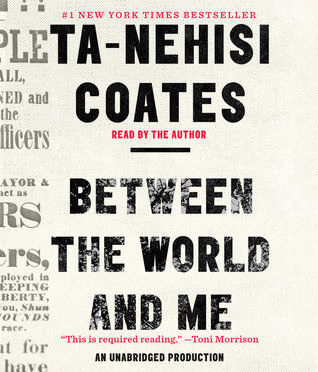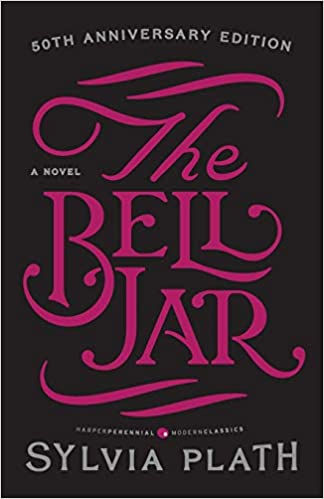Books I Read in June
- Ashley

- Sep 10, 2020
- 5 min read
June was a rough month for everyone, I think. It brought heightened tensions and attention to the issues of race within our country, which I tried to really learn about and learn from. My original goal was to read Elton John's biography during June for Pride Month, but I quickly switched courses and changed to biographies and books by Black authors halfway through the month.
I am also open to other great suggestions for books by Black authors, whether novels/fiction, or dealing specifically with racism and prejudice, please leave them in my comments and I'd love to check them out.

The Champion Mindset: An Athlete's Guide to Mental Toughness by Joanna Zeiger
Rating: ⭐️⭐️⭐️
Shelves: Sports, Memoir/Biography, Self Help
Review: This book provided some very useful tips for a new runner like myself. At times, it felt like she was talking directly to me, and I appreciated the parts of the book that called for self-evaluation. I definitely think this book gave me key points to help build a stronger mind when it comes to endurance sports, and I'm glad I read it.
Let Your Mind Run: A Memoir of Thinking My Way to Victory by Deena Kastor, Michelle Hamilton
Rating: ⭐️⭐️⭐️⭐️
Shelves: Sports, Memoir/Biography

Review: This book comes from a place of privilege, but one she acknowledges. Not everyone can be in her position - health wise, career wise, or fiscally. But she does her best to explain how a positive mental shift helped her be the successful professional runner she is/was.
I thought the writing of this was great, having just read Joanna Zeiger's The Champion Mindset and feeling that that book it was a little too formal and dry. This book offers some lovely descriptive writing, stories that had me laughing, and moments that brought tears to my eyes. It was a memoir weaved with a true sports biography. It helps that I've recently taken up running, so understanding how powerful an athlete must be to keep a 5'30" pace through a marathon hits differently with my 13'20"/mi pace 😂
The end of the book, past the epilogue, is gold if you're looking for her step-by-step guide of how she maintains a strong mindset. Will it apply or be feasible to everyone? No. Again, her privilege affords her this road to positivity. But I do think it will be useful to most people, and I look forward to putting this mindset to the test on my next run.
Between the World and Me by Ta-Nehisi Coates

Rating: ⭐️⭐️⭐️⭐️
Shelves: Black Lit, Modern Lit
Review: I did not write a review on this book, but it was very powerfully written and one I think everyone should read. I refrained from writing a review because of how charged this book is, and I didn't want to say anything incorrectly or insensitive. There were times I felt like I was being chastised (as maybe I should have felt as a white person with plenty of privilege), but I just didn't feel comfortable writing a review on this book. At the end of the day, I do think everyone should read it though.
Barracoon: The Story of the Last "Black Cargo" by Zora Neale Hurston
Rating: ⭐️⭐️⭐️⭐️
Shelves: Memoir/Biography, Black Lit, African American Lit, History

Review: "Barracoon is a counternarrative that invites us to break our collective silence about slaves and slavery, about slaveholders and the American Dream."
I only took off a star because there is so much going on in the bookends of this. I think all of it is important, but I wish I had known that the actual story of Kossola would be very limited. Before you get to Kossola, you have an epigraph, the contents, a forward, an introduction, an editor's note, a dedication, a preface, and another introduction. All of these give the book context and should be read, it just felt like A LOT. Then, afterward, you have an appendix, an afterward and additional notes/stories, acknowledgements, founders and original residents of Africatown, a glossary, a bibliography, notes, a bit on the author by Alice Walker, a readers' guide, an about the editor, an about the author, and praise. A. LOT. But again, all important to this work, I felt.
The story itself is powerful, heartbreaking, and a reminder that the issues this man faced are still issues today. There were moments when I was reading that I could have easily felt were pulled from headlines this week. I cried over the hardships this man, and many others who have a similar story to him, faced. He glossed over his years of slavery, I think, because they didn't hold as much weight to him as his time in Africa or his time with his family. It was powerful, powerful.
I also consulted additional resources to make sure I comprehended correctly what he was saying. It is written the way he spoke it, which is authentic and therefore perfect, but I felt like I missed the depth of, say, the traumatic events that happened to his family. I also totally missed that he had laid shingles/tiles on roofs for a living until I looked it up in another source.
Overall, this helped solidify what the Black Lives Matter movement has been saying for a long time, and even before - that the exploitation of black bodies has been happening since 1619, and is still happening today. It's a shame that the history of a man who lived from 1840 to 1935 could have the same relevance today - that the things that happened to him and his family could still happen (and are still happening) to Black families today.
I'll leave the review with one last quote: "We must courageously embrace this history because it is, as James Baldwin understood, 'literally present in all that we do,' and the power of this history, when we are unconscious of it, is tyrannical."
May we read and engage with these stories, but may we also talk about them so they never happen again.
The Bell Jar by Sylvia Plath
Rating: ⭐️⭐️⭐️⭐️
Shelves: Classic Lit, Favorites, Mental Health

Review: ***SPOILERS***
After putting off reading Sylvia Plath, specifically this novel, I somehow was inspired to look her up on Wikipedia and read about her. It was depressing and dark, and eventually led me to reading this book, which I'm glad I ended up doing. The symbolism in it was wonderful (the bell jar - was this about societal expectations? Was it coming from her mental illness? Both?; the fig tree; virginity and womanhood; etc.). There were a few times when I recalled feeling some of the things Esther did, especially when she discusses the fig tree metaphor. Being in that position while in college - looking around at everyone accomplishing things, and feeling like a failure over simple little things all the while succeeding in most others. Feeling overwhelmed with options for the future. But. I have never experienced the crippling depression and suicidal thoughts/actions that Esther experienced. I did feel like reading this opened my mind to what people with severe depression deal with and experience. It felt particularly relevant after the string of celebrity suicides in recent years (Kate Spade, Anthony Bourdain, Chester Bennington, Chris Cornell, etc.). It broke my heart when, in one part, her mother tells her, "I knew you'd decide to get better" or something along those lines. It felt overwhelmingly sad at times to read, especially when there were parts of Plath's life that paralleled so closely to this novel. I'm all for dark novels with stream-of-consciousness writing like this, so I'm glad I read it. I've read some reviews that said it was boring. I enjoyed the first half more than the second half, but I think the second half was more important. I was humbled by it, and it is definitely one that will stick with me for a while after putting it down.

























Comments